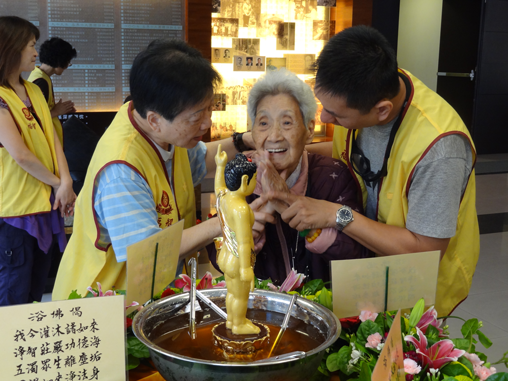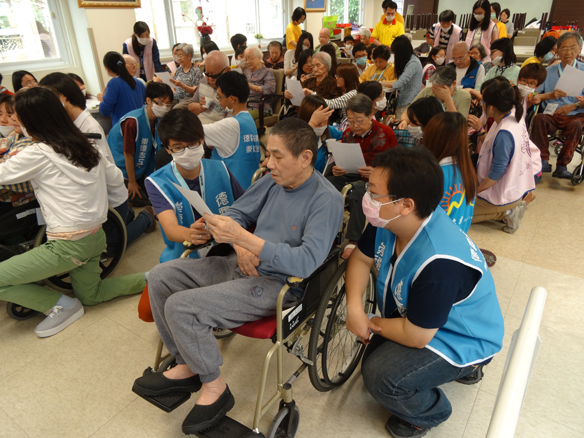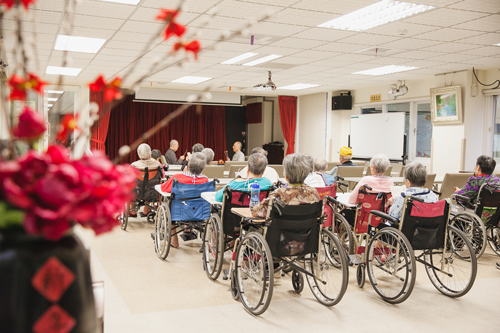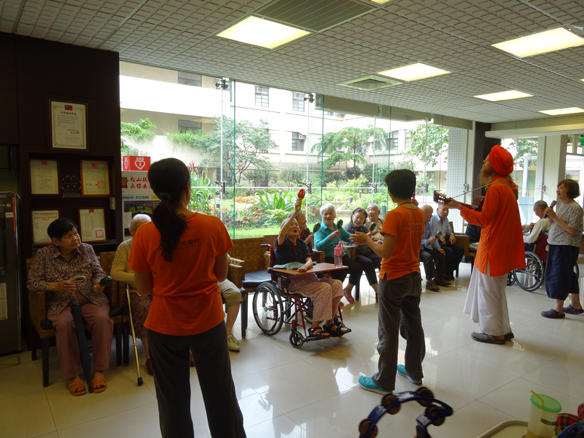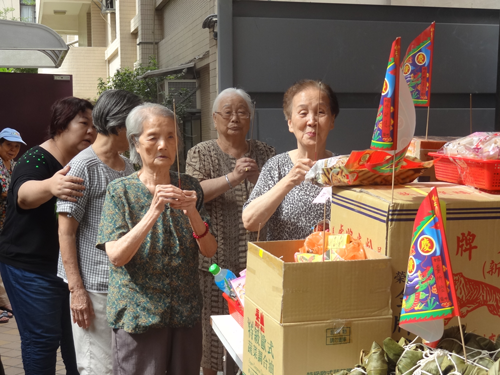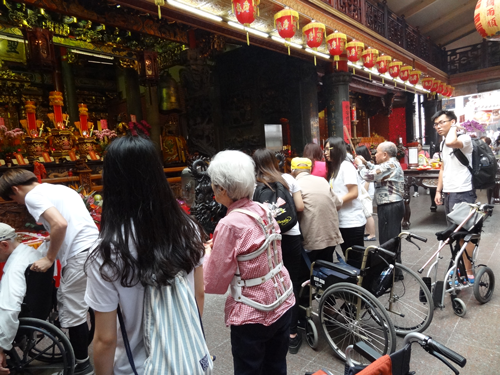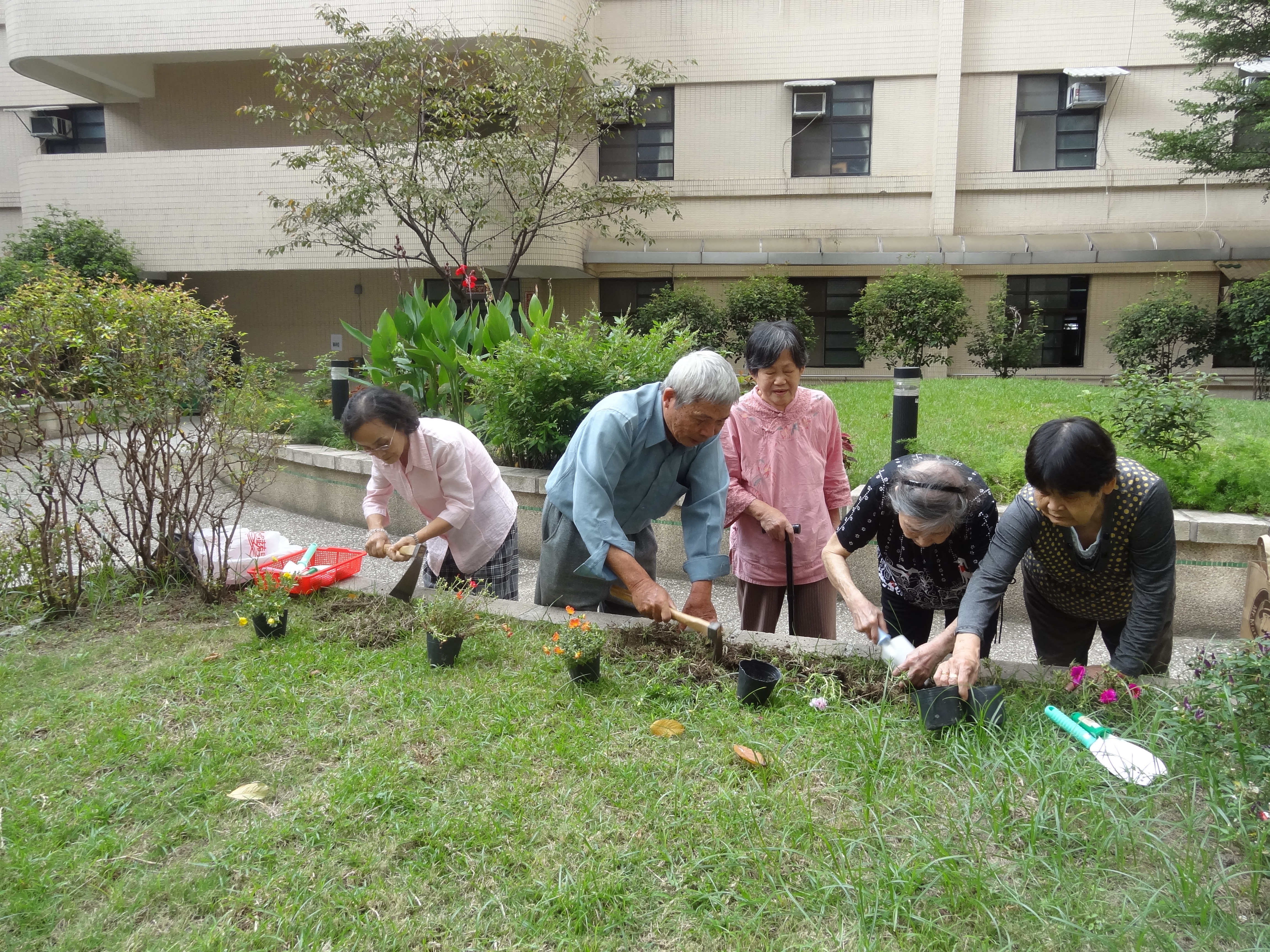Our Feature
Fragrance Garden
Although the institute is located in the urban area, in 2011 a healing garden was added. It is not in the hospital, nor in school, Aiai set up the very first "Fragrance garden" with healing function. The wide garden adds more green plants to different functional areas, including herbs, flowers, vanilla and native plant areas. The newly built barrier-free courtyard has friendly height not more than 60cm, so that the elderly in the wheelchair can easily bend or move to the parterre and plants; area to display the pot planted by elderly, gardening materials room, and health trail is also provided too.
Elderly can enjoy the changes in the color of the garden flowers, with the touch of the leaves, and even try the sweetness of plant leaves, with all kinds of brewed herbal tea...etc. Bringing visual, smell, taste stimulation, the fragrant in the garden also have the function of mood easing. Looking at the seeds' germination, budding process, life is just a great journey to look forward to.
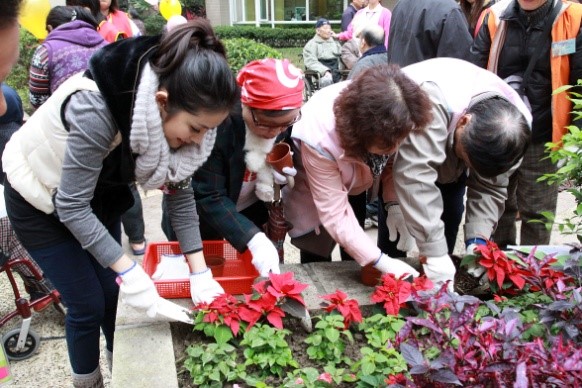
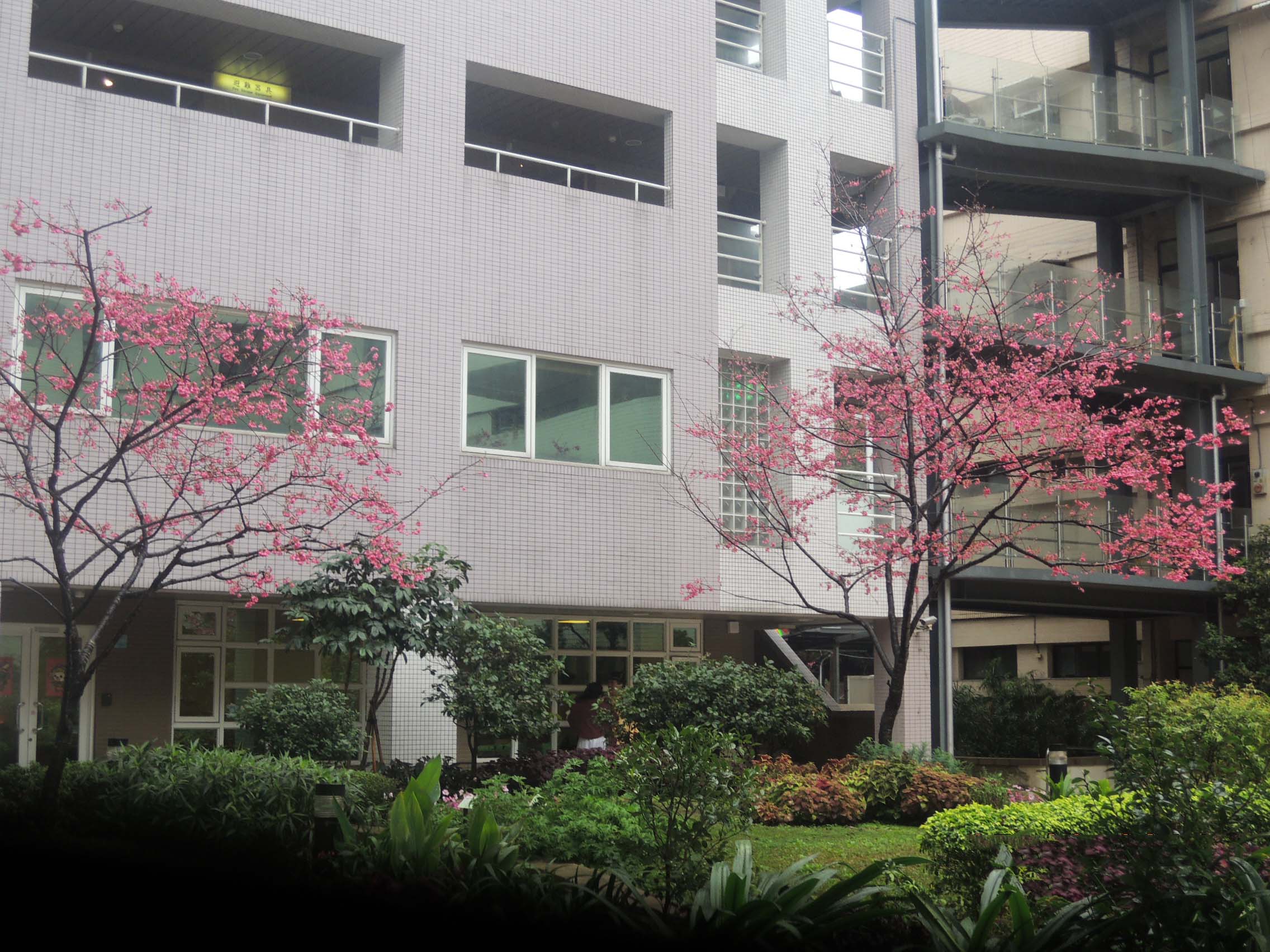
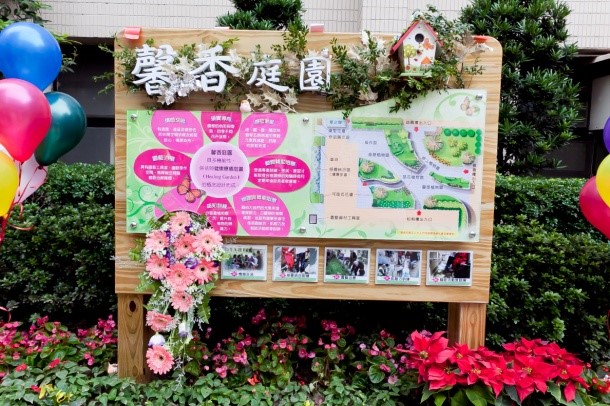
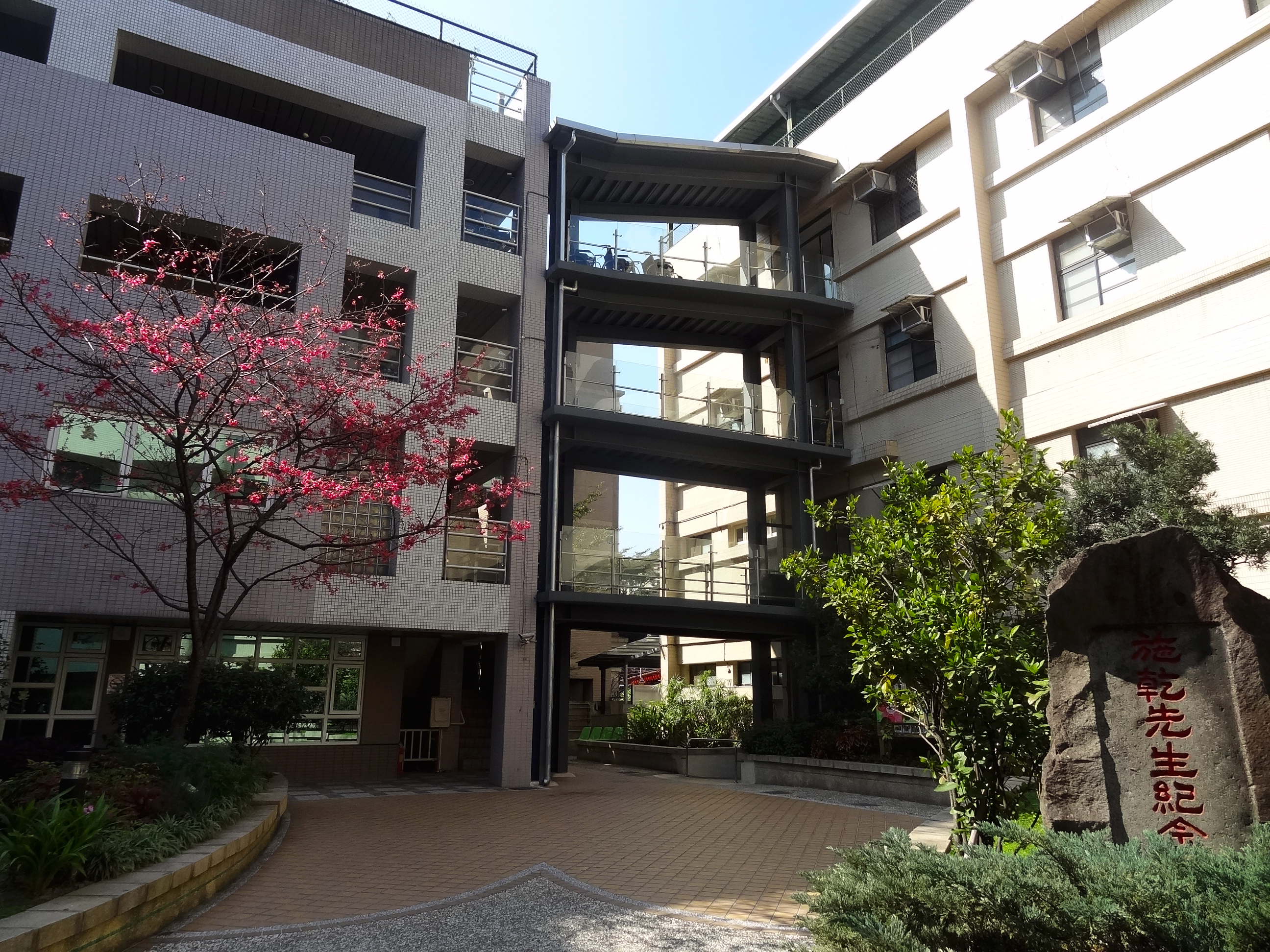
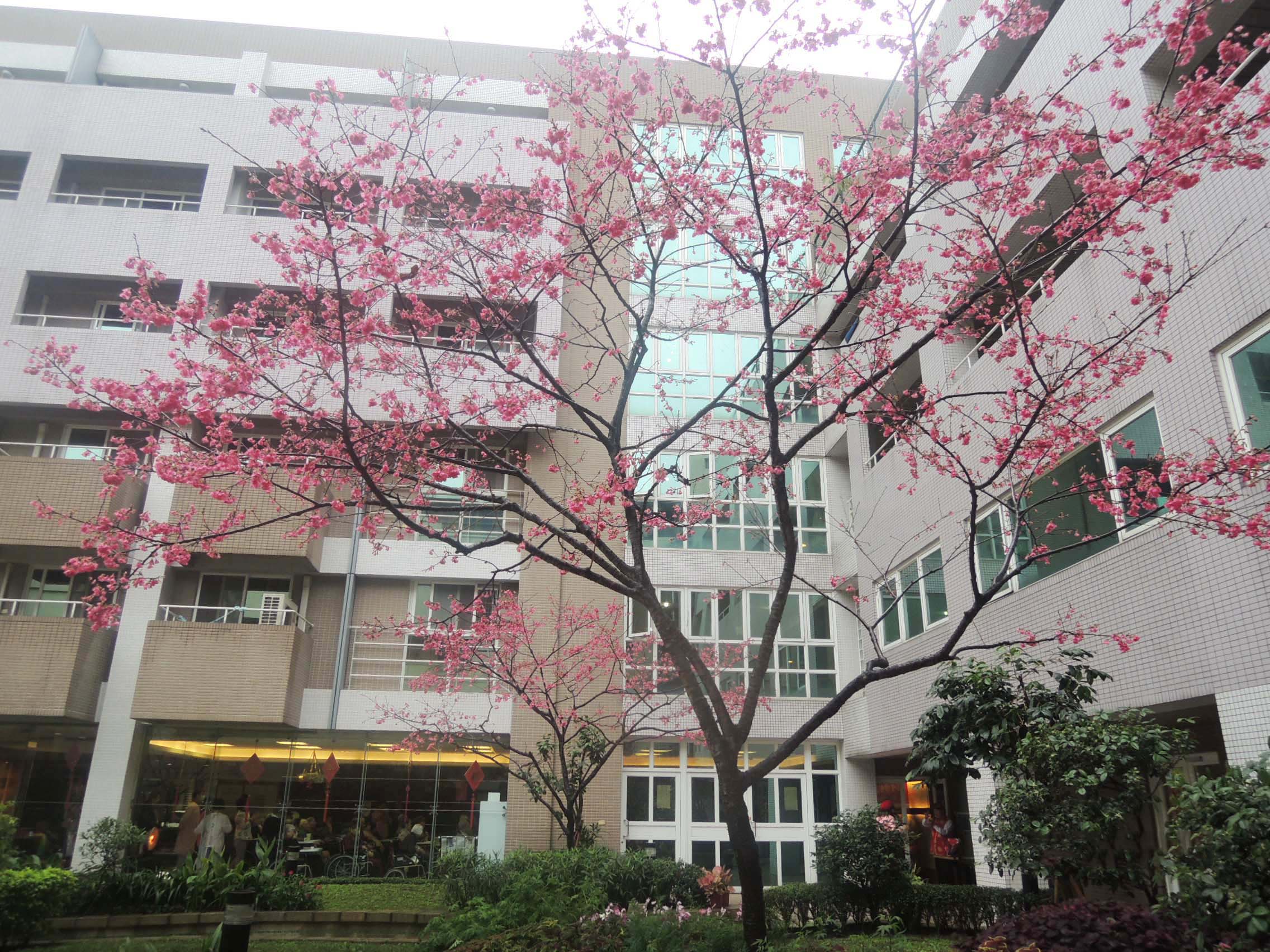
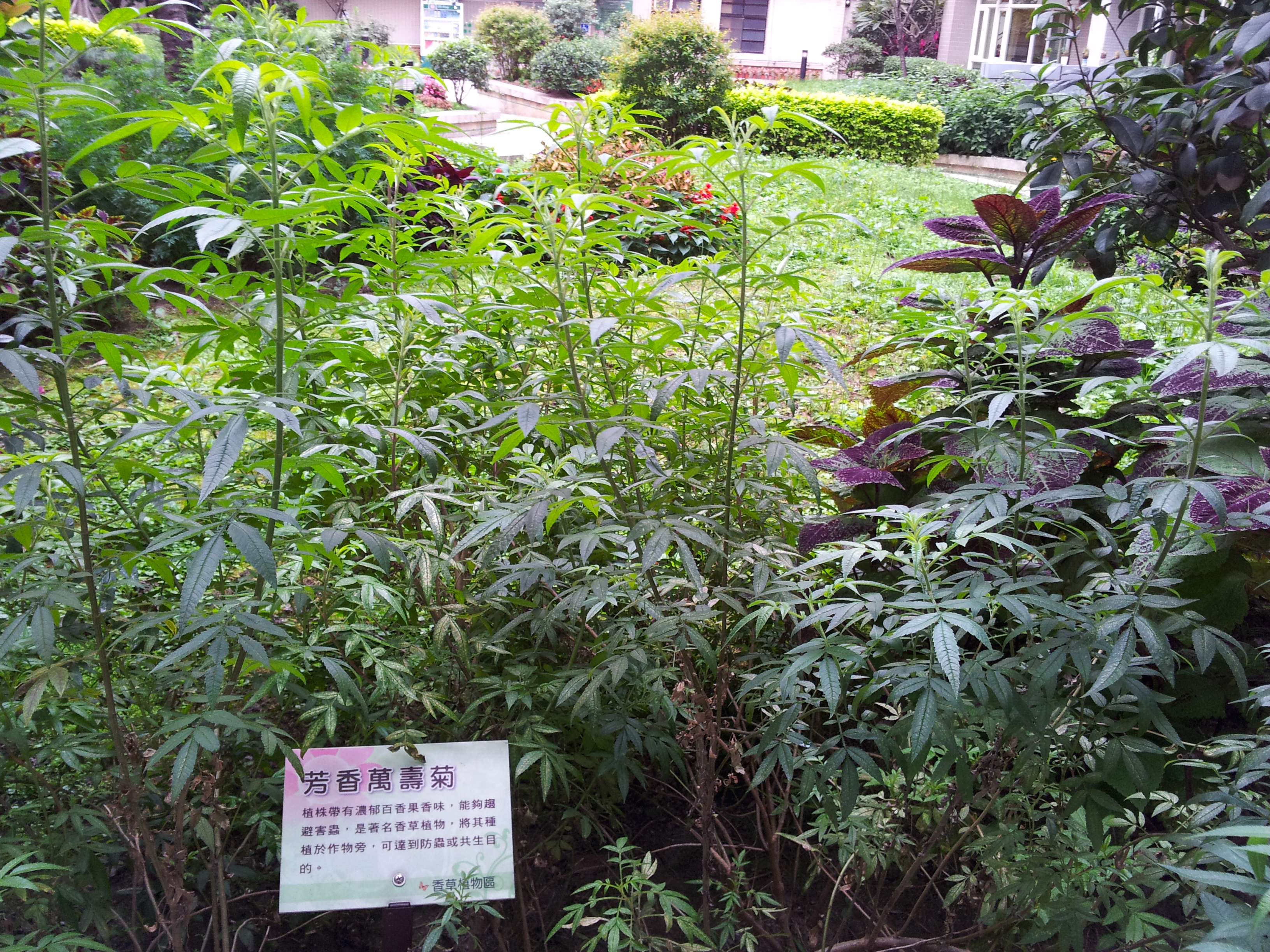
Horticultural Activity
According to the American Horticultural Therapy Association (AHTA) it is defined as "the use of plants or horticultural activities to promote social, educational, psychological and physiological adaptation, to help the body, the spirit and the health of the mind." In the field of recreational therapy, horticultural activity is a very important treatment to help maintain health, fight against chronic diseases or aging, dementia reconstruction. The elderly engaged in gardening treatment activities can get three benefits: a. Maintain health situation, b. Chronic diseases’ recover and curing, c. Prevent or resist dementia. The biggest difference between horticultural treatment activities and other types of activities is that the material usage of treatment is natural, and the treatment is practiced in groups, with these features we can take advantages from using the therapy.
Horticultural activities provide practical help on the elderly's physical, psychological aspect. The results of the horticulture activities were all positive and succeed. Annual survey show that elderly is interested in these activities, and this discovery encourages us to start up more horticulture activities to increase communication between each other, and to increase social interaction, and stabilize emotion and moods.
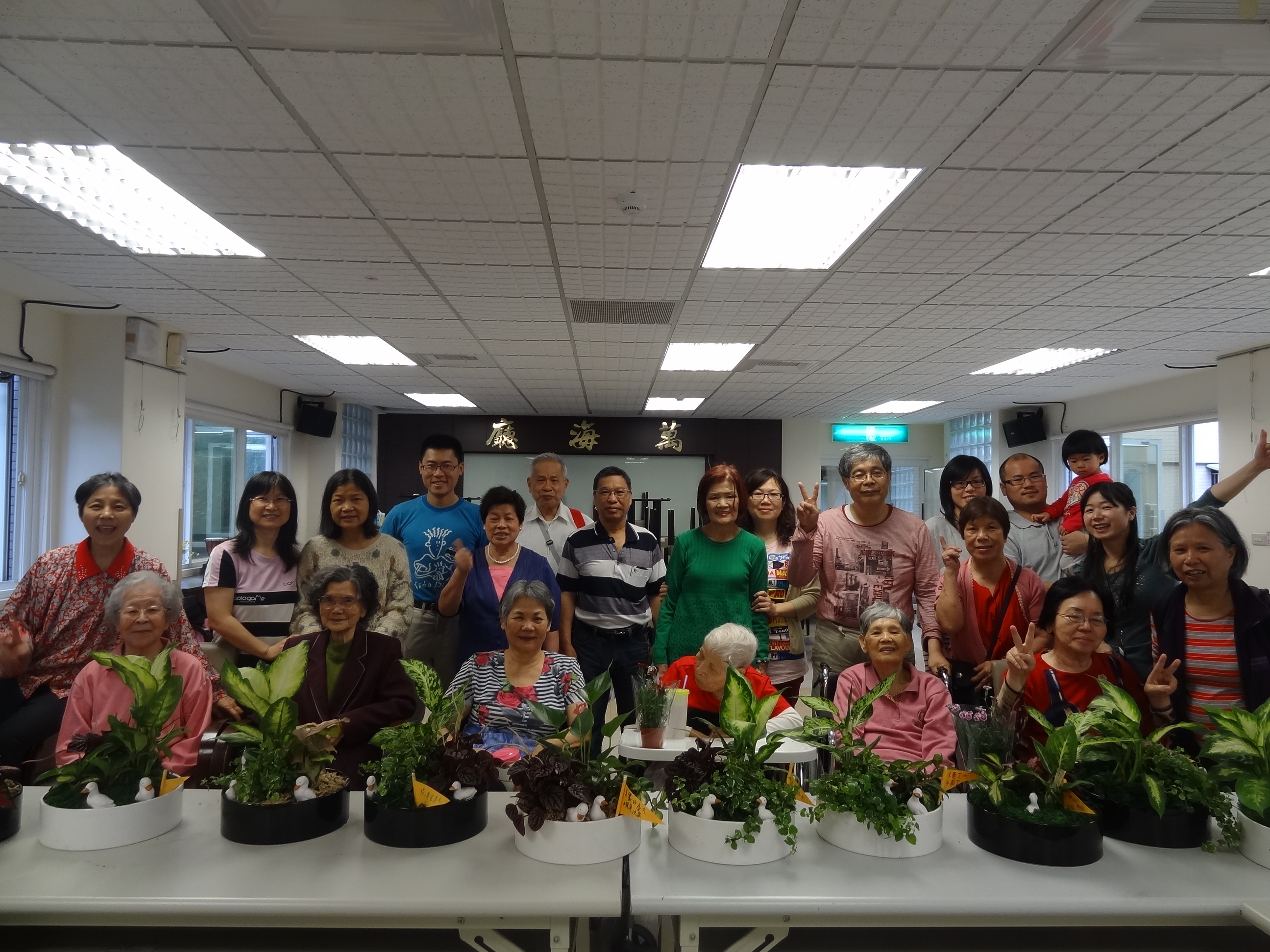
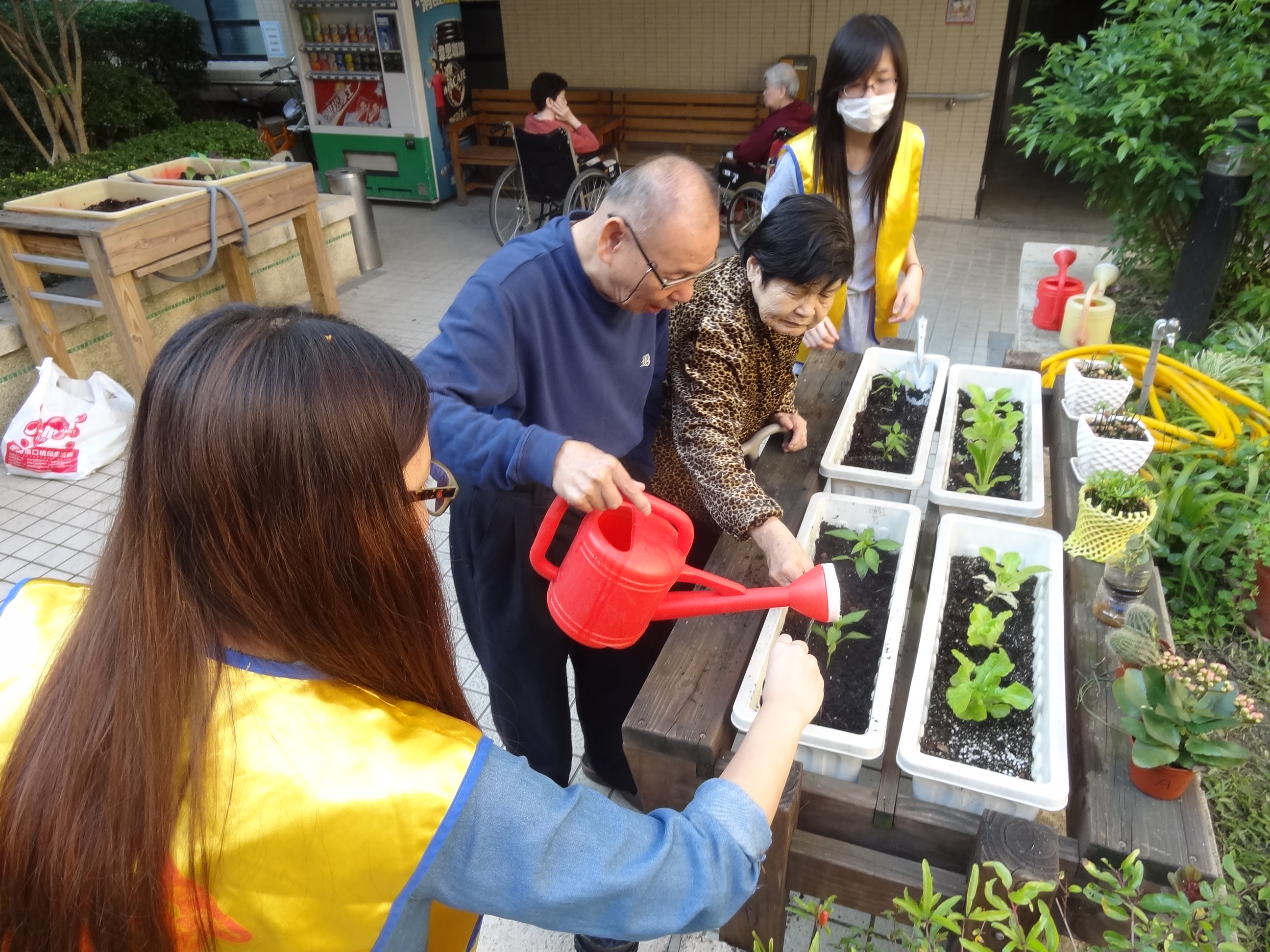
Physiotherapy:
Care homes in Taiwan rarely have such a complete physical treatment, professional equipment are prepared thoroughly. We pinpoint the elderly's treatment according to their symptoms, with the elderly's corporate most of them have been improved, and have eased the physical pain and discomfort.
The purpose of physical therapy: pain treatment, muscle strength training, joint flexibility increase, cardiopulmonary function training ... etc.
Physical therapy:
"physical factors": low frequency electrotherapy, intermediate frequency electrotherapy, hyperthermia.
"Manual therapy": joint passive exercise, passive stretching, joint loose therapy.
"Exercise therapy": stretching exercises, passive sports, walking training.
Elderly in Aiai do not have to travel to enjoy the professional service. Confronting pain, dysfunction and chronic diseases, we try to ease their symptom and educate patients to prevent It from getting worse or relapse.
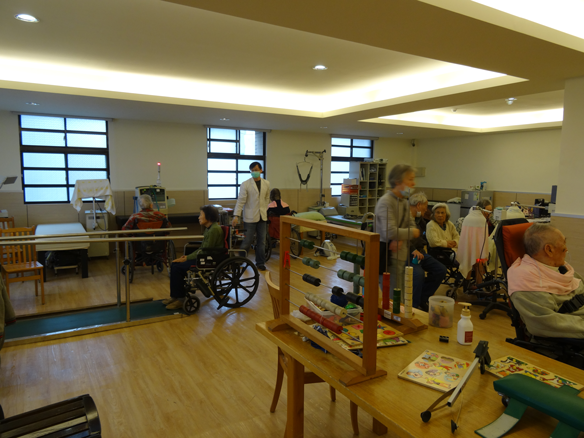
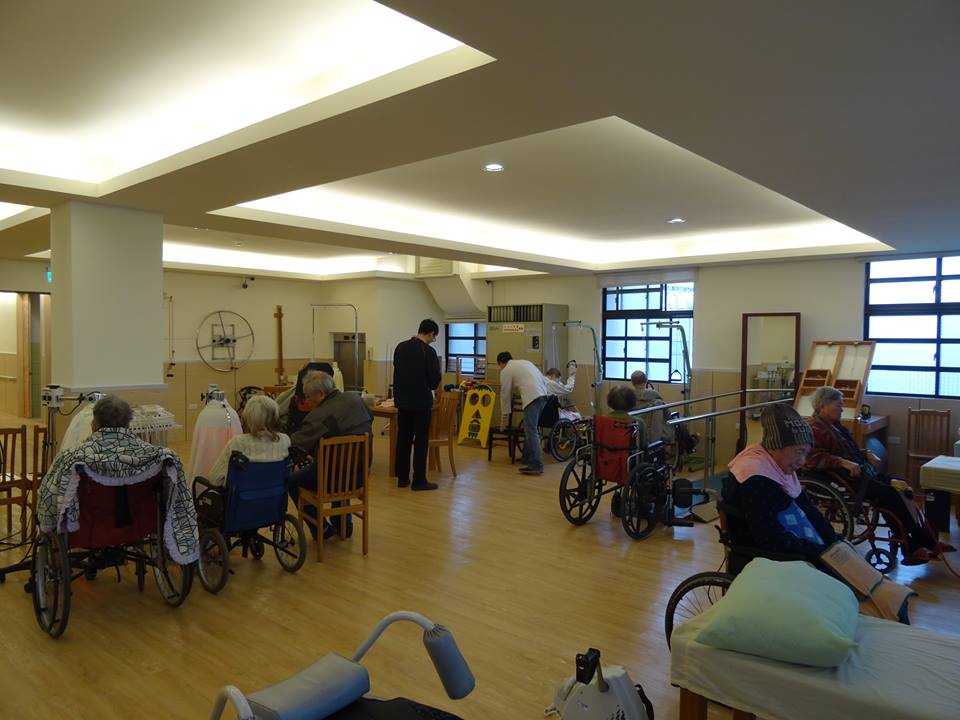
Medical cooperation
Taiwan University Hospital Bei-Hu Brench provides a monthly general clinic, rehabilitation services.In addition to the well-known nursing home and home care business, the Bei-Hu Brench has actively cooperated with the government departments to participate in the long-term care system planning and the development of health services for the elderly in various community institutions. This service massively reduces the inconvenience and expensive cost of elderly to leave for hospital.
Spiritual care
In recent years in the field of long-term care has gradually been taken seriously. We sincerely hope that every inhabitant who lives in a long-term care institution will be able to gain peace, serenity, dignity, In addition, full respect for the religious beliefs of every inhabitant and the provision of relevant services by volunteers of religious groups.
